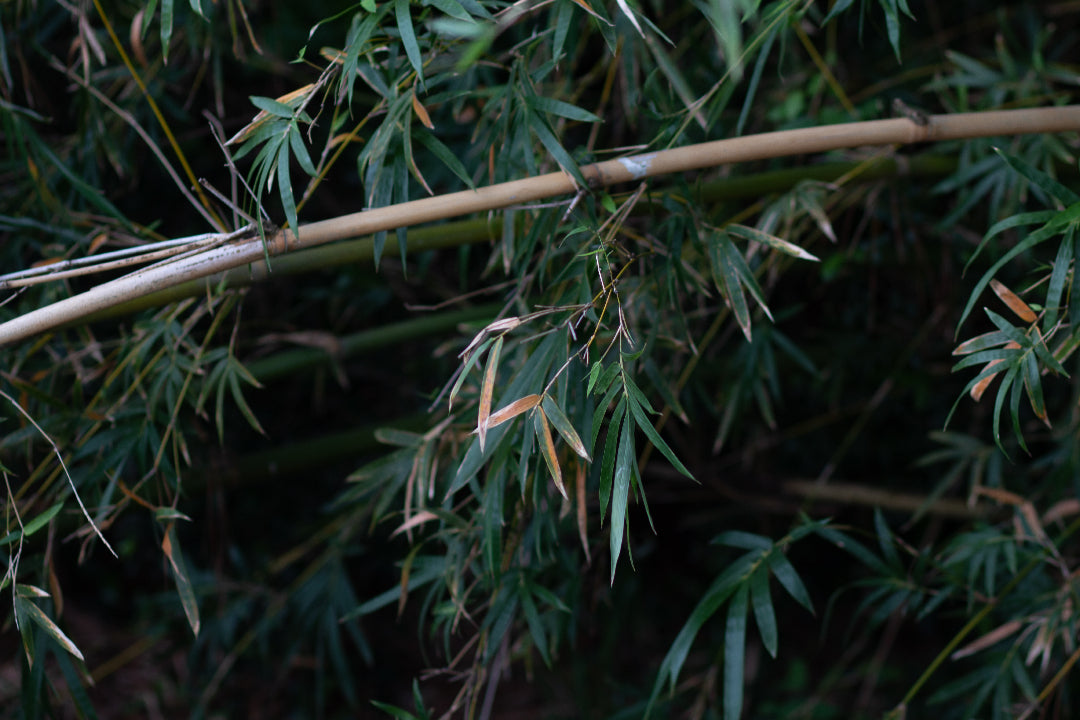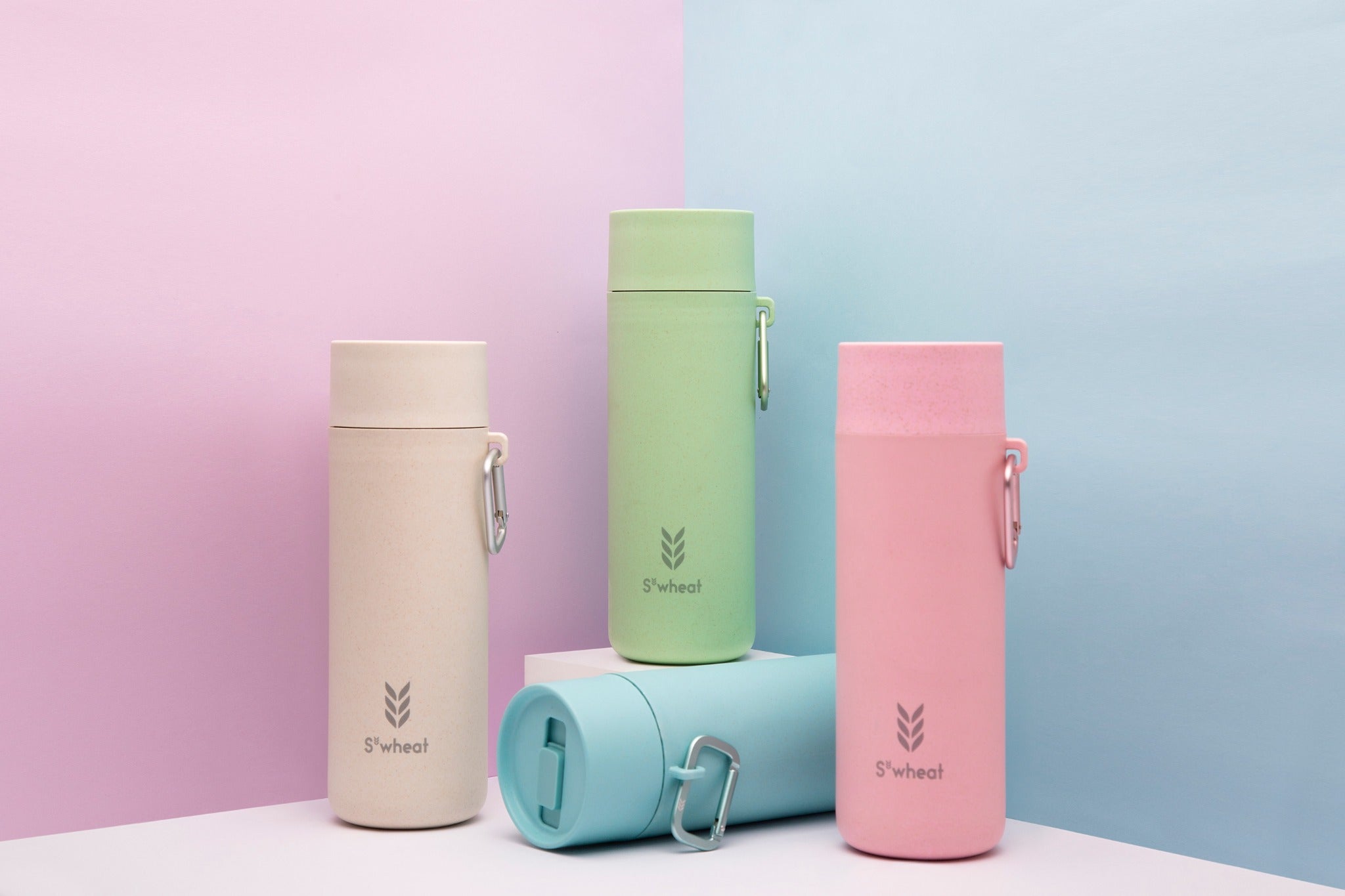16 million plastic bottles end up in landfill every day in the UK alone, globally the issue is just as severe. According to a UN report there could be more plastic in the ocean than fish by the year 2050.
With the growing awareness in how single-use plastics are harming the environment more and more innovations are being created to help tackle the issue. One of the newest and most exciting innovations is plant-based bio-plastics, but what is it and why?
What is a Plant-Based Plastic or Bio-Plastic?
Plant- based plastics or Bio-plastics as they are commonly referred to as are innovative new materials that carry similar properties and benefits to traditional plastics.
A bioplastic is made from a plant source compared to traditional plastic which is made from petroleum. There are varying types of plant-based plastics such as Wheat Straw, Bamboo Fibre, Rice Husks, Sugar Cane, Corn Starch etc.
Bio-plastics can be made with Polylactic Acids (PLAs) which are naturally occurring in plants or they can be made with polyhydroxyalkanoates (PHAs) which are engineered from microorganisms.
How Do Bio-Plastics Compare To Traditional Plastics?
Traditional petroleum based plastics require around 8% of the world's oil resources. The production of single-use plastic water bottles demands 17 million barrels of oil a year. That’s comparable to filling a million cars per year with fuel!
Recently it has been increasingly difficult for the UK Government and local authorities to deal with our plastic waste. With China's recent ban on accepting most of our plastic waste, councils have been left with the difficult task of finding end of life destinations for our plastic waste, especially for certain plastics such as black plastic.
Certain commonly used plastics are difficult to recycle, or cannot be recycled at all. In-fact in 2014 the UK produced 4.9 million tonnes of plastic waste, devastatingly only 1.2 million tonnes (24%) of it was actually successfully recycled.
In comparison plant-based plastics can be created from agricultural waste or scraps, eliminating the need for precious oil resources while repurposing waste and benefiting from reduced carbon emissions.
If we substituted the yearly global demand for petrol-based plastic with bio-based plastic we could save more than 42 million tonnes of CO2. This equates to the CO2 emissions of 10 million flights per year!
How Should I Use Bio-Plastics?
Many bio-plastics are biodegradable, either in industrial landfill, industrial compost or home compost. For a single-use product to be described as biodegradable it needs to pass the EN13432 test, so watch out for this. Every product is different so make sure to check the manufacturers directions on how to dispose of the product correctly.
Other bio-plastics can be recycled through your local plastic collection scheme. This means the bio-plastic will be sorted and separated through mechanical processes in recycling plants. The material can then be re-used for new products.
What Are The Benefits Of Bio-Plastics?
Most plant-based plastics mimic the structure of traditional plastics, this means we receive the benefits of durability, longevity and practicality that we enjoy from traditional plastics without their negative environmental effects.
Another benefit to plant-plastics is that they typically do not require pesticides or chemicals to grow. We use bamboo fibre and wheat straw in our products, bamboo is one of the hardiest plants available. This plant thrives without the use of pesticides and rarely suffers from infections. In-fact scientists have found that bamboo contains a unique bacteria called Bamboo Kun, this bacteria gives the bamboo its unique antibacterial properties which are then passed onto the bio-plastic.
Bio-plastics contribute towards a more circular economy. At S'wheat we re-utilise waste bamboo and wheat straw that would otherwise be burnt after harvesting, to create new and purposeful products that can be used for years to come.



7 comments
Nyckole Holguin
Hello, I am a student at St. Edward’s University and I am doing a story on plant-based plastic. I want to know how plant-based plastic is made and turned into a carton bottle? I want a quote for my story and I will appreciate it if you can provide some feedback. Thank you for your time.
Louis Richard
Is there a plant based plastic material that can substitute for petroleum-based plastic, especially No. 1 and No. 2? Water vapor and oxygen transmission rates are a concern. Thank you.
Steve
This is very useful, but it seems that there are very few bio plastics that can be composted at home. EN 13432 only assesses products for biodegradable performance in an industrial composter. If they do not fully biodegrade they simply become micro plastic particles which are particularly harmful.
Maria Clara
Very important and great article. Thanks for the Beautiful article and the infomation for my project
Audrey Elliott-Hook
Very informative article, plant based bottles are the way forward for us and our planet.
Leave a comment
All comments are moderated before being published.
This site is protected by hCaptcha and the hCaptcha Privacy Policy and Terms of Service apply.